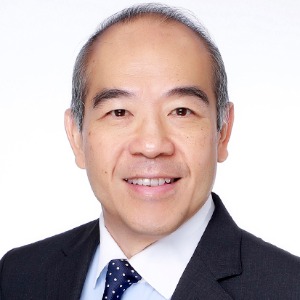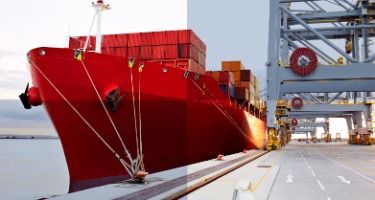“Documents create a paper reality we call proof” – Mason Cooley
The recent case of The “Mount Apo” and the “Hanjin Ras Laffan” [2019] SGHC 57 brings to mind difficulties that may sometimes be encountered in proving the factual and legal status of a bareboat or demise charterer. In this article, we explore proof of demise charter by the demise charterer, proof by a third party claimant when arresting a ship, and evidentiary differences in litigation and arbitration.
The case concerned a collision between capesize bulk carrier “Mount Apo” and LNG carrier “Hanjin Ras Laffan”. The owners of “Mount Apo”, Cisslow Shipping Inc. (Cisslow) commenced an action in rem against the owner and/or demise charterer of the “Hanjin Ras Laffan” in respect of the collision. Parties claiming to be the owner and demise charterer of the “Hanjin Ras Laffan”, who were KSH International S.A. (KSH) and H-Line Shipping Co. Ltd. (H-Line), respectively commenced an action in rem against the owner and/or demise charterer of the “Mount Apo” in respect of the same collision. Both actions are consolidated and the Singapore High Court was asked to apportion liability in respect of the collision.
A preliminary issue arose from the contention of Cisslow that H-Line had no title to sue because it was not the demise charterer of the “Hanjin Ras Laffan”. Cisslow contended that if it bore any liability, it was only to KSH, the owners of the “Hanjin Ras Laffan”.
The evidence considered by the Singapore High Court included:
- the testimony of H-Line’s deputy manager Ms. Joo, whose work concerned the management of vessels and, in particular respect of the “Hanjin Ras Laffan”, regulatory filings with Korean government agencies, liaising with the Panama ship registry and liaising with insurers;
- the bareboat charter agreement between KSH and Hanjin Shipping;
- amending and restating agreements between KSH and Hanjin Shipping on account of loan agreements between KSH and its lenders;
- a novation agreement novating the rights and obligations of Hanjin Shipping under the bareboat charter to H-Line;
- continuous synopsis records issued by the Panama ship registry after the novation agreement recording that “Hanjin Ras Laffan” was operated by H-Line under the terms of a registered bareboat charter;
- invoices issued by a repair yard addressed to “Captain & Owners of Hanjin Ras Laffan, H-Line Shipping”;
- the passage plan of the “Hanjin Ras Laffan” bearing H-Line’s letterhead
- the record of passage planning of the “Hanjin Ras Laffan”, bearing H-Line’s letterhead
- H-Line’s expenditure of monies to repair the “Hanjin Ras Laffan” after the collision
- a collision jurisdiction agreement containing a warranty that H-Line was the demise charterer of “Hanjin Ras Laffan”
- H-Line manning the crew of the “Hanjin Ras Laffan” at the material time of the collision, consistent with actual possession of the vessel
- a charge registered at the U.K. companies registry against Hanjin Shipping dealing, among other things, with the earnings of Hanjin Shipping arising out of the use and operation of the “Hanjin Ras Laffan”, whose status remained listed as “outstanding”
Significant in the Singapore High Court’s judgment is the judge’s treatment of Cisslow’s objection to the admissibility of the original bareboat charter between KSH and Hanjin Shipping, the subsequent amending and restating agreements and the novation agreement. The basis of the objection was in essence that, there was no one before the court who could attest to their truth of the statements in the documents, because the deputy manager Ms Joo joined H-Line after these documents were created. The documents were therefore “hearsay”. The judge’s approach was to observe that it was possible to prove a demise charter and, hence title to sue, even if documents recording a demise charter arrangement were not admitted in evidence. It was possible for a demise charter to be proved by the testimony of a person who was in a position to speak about the ownership and the demise charter of the vessel generally. The judge reviewed Ms Joo’s duties as deputy manager and found that although she was not involved in the creation of the documents, she was familiar with the circumstances surrounding them and also had personal knowledge of running the “Hanjin Ras Laffan” according to the terms of the demise charter arrangements. The judge accepted Ms Joo’s evidence and found the demise charter proved.
Had the same question been one that had to be determined by an arbitral tribunal in Singapore, it is unlikely that any issue would have arisen over admissibility of the original bareboat charter between KSH and Hanjin Shipping, the subsequent amending and restating agreements and the novation agreement. Singapore evidentiary rules on documentary hearsay are excluded from arbitration proceedings. Although the power conferred on arbitral tribunals includes the power to determine the admissibility, relevance, materiality and weight of any evidence, arbitral tribunals rarely hold that documents are inadmissible. The usual course is for all of the evidence to be considered. The tribunal would determine how reliable each piece of evidence is and what weight to give to it. The tribunal would then come to a decision on the whole of the evidence. Time and costs is rarely spent arguing admissibility of evidence.
This case serves as a reminder of the question whether Singapore’s evidentiary rules on hearsay should be abolished on the ground that, in the modern age, they serve to distort a case that a party would otherwise be able to bring. In a report in 2007, the Law Reform Committee of the Singapore Academy of Law recommended reform in the law by abolition of the hearsay rule in exchange for proper safeguards to ensure that there was a basic level of fairness between the parties. One of the reasons given was that this would result in a more even-keeled trial process, especially in international disputes, and increase the attractiveness of Singapore as a forum for adjudication of international civil disputes. Some attention was paid to the recommendation, when the Singapore International Commercial Court (SICC) was established in 2015. The SICC was given freedom not to apply Singapore evidentiary rules and/or to apply other rules of evidence (foreign, arbitration or otherwise) in cases and to the extent that SICC procedural rules allowed. While this may be useful in most cases, including those involving carriage of goods by sea, actions in rem are still the specific province of the general Singapore High Court and parties will not be able to avail themselves to the freedoms in the SICC.
Also worth considering is the position of a claimant who wishes to arrest a ship on the basis that the party liable to the claimant is the demise charterer of that ship. Ordinarily, the bareboat charterparty or other documents containing or evidencing a demise charter would be private to the owner and the bareboat charterer and would not be available to the claimant. The evidence of someone within the organisation of the party whom the claimant holds liable would ordinarily not be available, unless that person has since left the organisation. Neither would evidence of manning arrangements be ordinarily available. The claimant would have to refer to circumstantial evidence such as ship registry records of a bareboat charterparty, third party invoices referring to the party as a bareboat or demise charterer or the “owner” of the vessel, and other extraneous documents to show that the party was the demise charterer of the ship. The claimant may well have to conduct private or discreet enquiries into the vessel to obtain evidence of a demise charter arrangement. Although evidence adduced by a claimant in applications to arrest ships are not subject to the hearsay rule, a claimant must still prove the fact that the party liable is a demise charterer at the eventual substantive hearing. If the substantive hearing takes place within arbitration proceedings, no evidentiary problem of the nature described above arises. If the substantive hearing takes place in the Singapore court, the claimant may well have a difficult time with proof.
Evidence and their ability to establish facts is crucial to the success of a claim or defence and should always be the subject of deep analysis before substantive engagement. Sound advice on evidence could make all the difference.



















